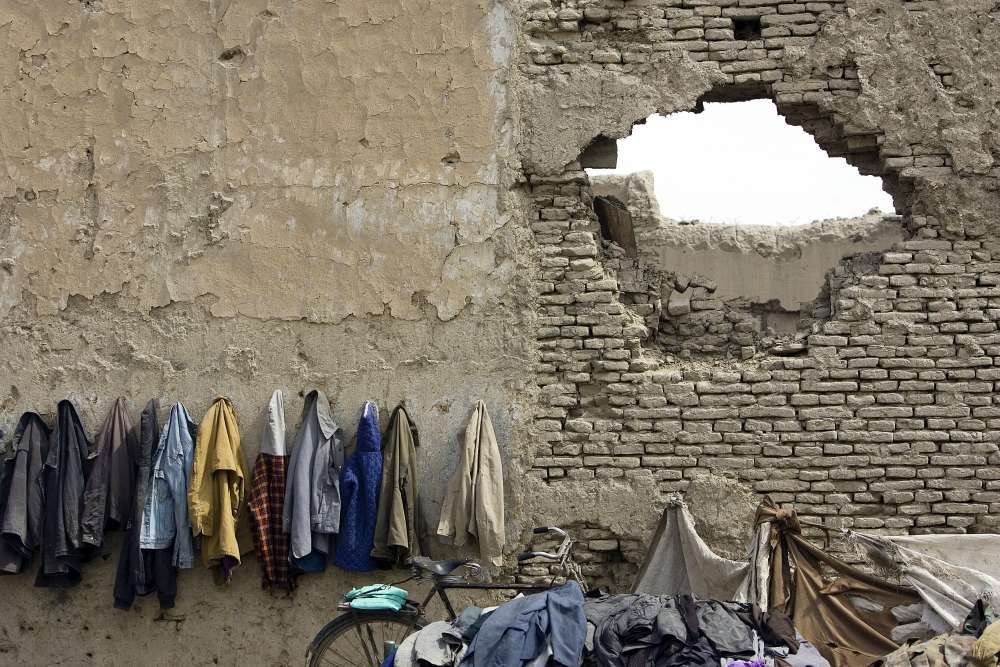Reflections on the Inequities of Humanitarian Assistance
Possible Courses of Action for Germany
Executive Summary
For nearly two decades there has been growing concern within international humanitarian assistance with ‘forgotten crises’ and ‘underfunded sectors.’ These terms were conceived as an advocacy tool to help mobilize funds and awareness. They have helped to raise the profile of humanitarian actors and divert attention to places and people in need, which are often overlooked.
In this discussion paper we aim to consider the problem of forgotten crises and underfunded sector less from an advocacy and fund-raising perspective, but rather from a normative-analytical angle that identifies the underlying conceptual and normative issues. We therefore suggest abandoning the terms ‘forgotten crises’ and ‘underfunded sectors’ for the purposes of this paper. Instead, we will talk about inequity as uneven distribution of financial resources and political attention across places, sectors and population groups.
Given the limited financial and political means available, we consider inequities within global humanitarian assistance to be inevitable. The internet has ensured that information is constantly accessible, but the sum of our priorities and actions produces and sustains varying levels of political and financial attention to crises. The decisions of donors and humanitarian organizations, taken within the confines of limited resources, produce global inequities in humanitarian response. Addressing this imbalance does not automatically imply their equalization; it may well mean that we accept the disparity as the intended or unintended result of our moral choices.
Duty-Based and Results-Based Distribution
In chapter 2 we hone in on normative principles of distribution and the basic understanding of need. We argue that there are two core normative principles at play in current humanitarian assistance – the principles of duty-based and results-based distribution. The duty-based principle gives priority to those with the greatest need and tends to abstract from all other practical concerns like media attention, interests, institutional path-dependencies and cost-effectiveness. Results-based distribution, by contrast, strives to reduce overall need and integrates all the practical factors shaping humanitarian assistance.
Despite all discussion of resilience, vulnerability and rights, need remains the key rallying call for humanitarian assistance. Building on four sources of uncertainty concerning the nature of human need – the definition of need, whether we can ever know the needs of others, how we can measure them and how we can respond to them – we argue that there is reason to complement a biological with a social understanding of need. Moreover, given the uncertainty about the nature of human need, the needs declarations by those concerned should become a major priority. This creates the possibility of dealing with the reality of German humanitarian assistance in a new way, since German humanitarian practice has never as yet worked according to a narrow understanding of need.
Reasons for Inequities of Humanitarian Assistance
Chapter 3 delves more deeply into the reasons for the inequities of humanitarian assistance. It takes stock of the broad academic literature on humanitarian decision-making and provides a nuanced panorama of the factors shaping humanitarian assistance beyond identified need. These factors include imperfect information, the media’s attention cycles, political interests, historical and cultural ties and the mandates and specialization of humanitarian agencies.
(In)equity of German Humanitarian Assistance
While chapters 2 and 3 are a general analysis, chapter 4 focuses on the (in)equity of German humanitarian assistance. The AA is set to reform the way it conducts humanitarian action. Until now, a range of factors has shaped the AA’s humanitarian decision-making: the structure of the humanitarian budget, the capacities and priorities of partner organizations, external pressure, assessed needs, and the perceived value added and political priorities within the foreign office. Similar factors determine NGO decision-making and action: the availability of funds, the feasibility of the operation, media coverage, the needs of the affected population, and the perceived added value of an NGO engaging in a specific crisis.
This variety of factors indicates that there is an inherent normative tension within German humanitarian assistance with regards to the applied distributive principle: while language implies a commitment to duty-based (i.e. impartial) humanitarian assistance, practice is implicitly shaped by the idea of added value and the requirements of developmental humanitarian assistance, reflecting a results-based approach.
Courses of Action
Chapter 5 develops three courses of action for German Foreign Office to address humanitarian inequities. They are meant to be food for thought, not prescriptions of the next steps. The results-based approach aims to be transparent and predictable about the reality of selective and long-term oriented German humanitarian assistance, in order to further strengthen the good working relationship between the AA and its partners. The results-based approach with a global ambition aims to tackle the inequities of global humanitarian assistance by channeling funds and investing political attention to those places, sectors and groups that have received too little attention based on a broad conception of need. The selective duty-based approach, then, accepts the reality of selective assistance, but aspires to be absolutely needs-based where German humanitarian assistance becomes active. This leads to a much stronger focus on longer-term assistance, preparedness and community-based programming since these are the needs repeatedly expressed by those concerned in many of the current humanitarian crises in different parts of the world. The focus on the German Foreign Office in this chapter does not mean that German NGOs do not have a role to play in reforming German humanitarian assistance. They too, need to think about the distributive principle they want to apply and align their actions accordingly. However, developing courses of action for the NGOs would have meant to treat them as a collective actor. Given the differing mandates, histories and capacities of these organizations we felt that this approach would be unsuitable.
The discussion paper deliberately focuses on German humanitarian assistance. The role other donors, NGOs, international organizations, local governments and communities could play in addressing the inequity in humanitarian assistance is only addressed at the margins of this study.







